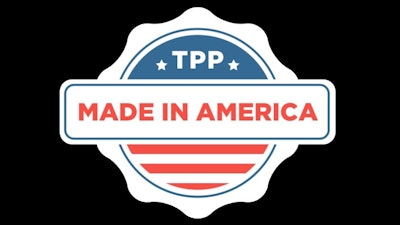
The Trans-Pacific Partnership (TPP) is a multi-national trade agreement now being considered by 12 countries.
In an insightful commentary in Research in Social and Administrative Pharmacy (RSAP), the ramifications of major components of the agreement are discussed, especially those potentially impacting the worldwide pharmaceutical industry.
According to author Robert A. Freeman, PhD, of the Department of Pharmacy Practice and Administration at The University of Maryland Eastern Shore, Princess Anne, Maryland, USA, there are three main areas of controversy.
- First, pharmaceutical prices will be driven up, with especially negative effects on low-income countries.
- Second, there is potential for litigation for individual countries whose policies might affect the financial health of large, multi-national pharmaceutical companies.
- Finally, the multi-national pharmaceutical industry has an undue, protectionist influence in the negotiations, and its negotiation positions are at odds with public health.
Editor-in-Chief of RSAP, Shane P. Desselle, PhD, of Touro University California College of Pharmacy, and Applied Pharmacy Solutions, adds, "The effect on drug prices, particularly generic drugs, will diminish access to essential medications among underserved populations in developing nations."
With regard to the pricing issue, Professor Freeman discusses the industry-wide form of price discrimination, known as Ramsey pricing, in which prices are set on the basis of a market segment's or country's wiliness and ability to pay. The concern is that if the agreement forces a single price for all countries party to the agreement, this price may well be lower than is economically viable for pharmaceutical companies to maintain.
The litigation question, governed by the investor-state dispute settlement (ISDS) proposal in the TPP, is formulated differently than the World Trade Organization's normal procedures for anti-competitive practices resolution. In the TPP, legal disputes would be tried before a court of private attorneys appointed by the World Bank or United Nations.
It is feared that the suits could challenge national laws that violate free market principles outlined in the agreement. The author claims that "The concern is very real; however, it may be overstated in that it is rare for a pharmaceutical company to litigate under current WTO provisions."
Further, Professor Freeman believes that the ISDS proposal may not survive as part of the TPP due to pressure from countries like Australia and New Zealand, which maintain low drug prices as a matter of national health policy.
The United States Trade Representative (USTR) is responsible for the U.S. position on the TPP, and the third concern is that the pharmaceutical industry has been able to exert undue influence in past trade negotiations.
The author relates his personal experience as an industry trade association consultant during WTO negotiations, and suggests that the priorities of the USTR are constantly changing, and different industries find themselves in- and out-of-favor at different times.
Although trade policies are often ignored when studying pricing, national financing schemes and comparative health systems, the author suggests that the TPP could affect drug counterfeiting activities, could imperil Australia's and New Zealand's national drug policies, and might significantly affect the profitability of the biologic drug industry.
Professor Freeman concludes with a caution. "While impact of the TPP on public health status in the member states is a valid public policy concern, it should be noted that trade agreements such as the TPP are not concerned with these outcomes, and that it is unrealistic to expect they will be an overriding consideration in the final agreement."






















